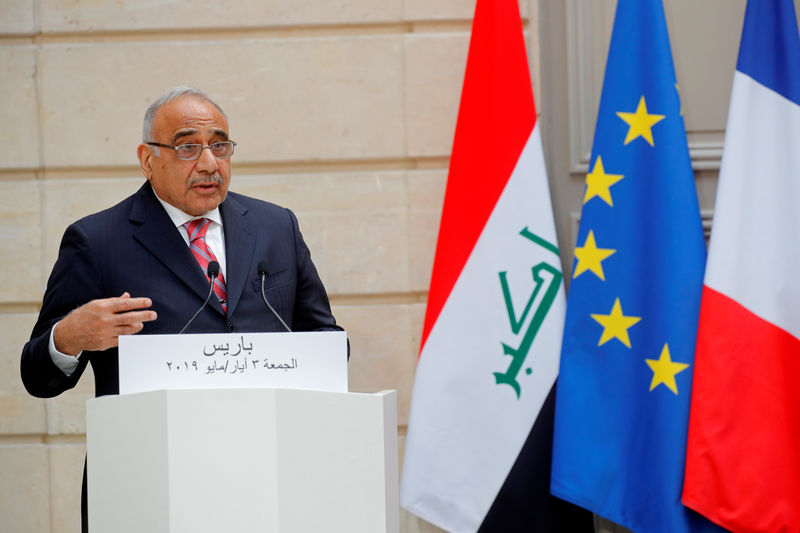BAGHDAD (Reuters) - Iraqi Prime Minister Adel Abdul Mahdi said on Tuesday any disruption to oil exports through the Strait of Hormuz will be a "major obstacle" for his country's economy which has too few oil export outlets.
His government was studying contingency plans to deal with possible disruption, including looking at alternative routes for oil exports, Abdul Mahdi said.
"Iraq has too few export outlets," Abdul Mahdi told reporters at his weekly press conference on Tuesday. "Right now, most of the Iraqi oil exports are being done through southern terminals."
"We need to diversify our export outlets," he said.
The prime minister's comments came in response to a question on whether tensions between Iran and the United States could affect Iraq's oil exports via the Strait.
A vital shipping route linking Middle East oil producers to markets in Asia, Europe, North America and beyond, the Strait of Hormuz has been at the heart of regional tensions for decades.
Recent months have seen a bout of instability in the region, with six tankers attacked since May amid escalating tensions between Tehran and Washington.
Many fear the tensions could affect the flow of oil.
Abdul Mahdi said as part of contingency planning, his cabinet had authorised the country's oil ministry to move forward on two projects to bolster the country's future exports.
The ministry was tasked with conducting feasibility studies and looking at investment models to build a major pipeline to export oil from southern Iraq to Jordan's Aqaba port, he said.

The ministry will also look at establishing an offshore oil installation in the south.